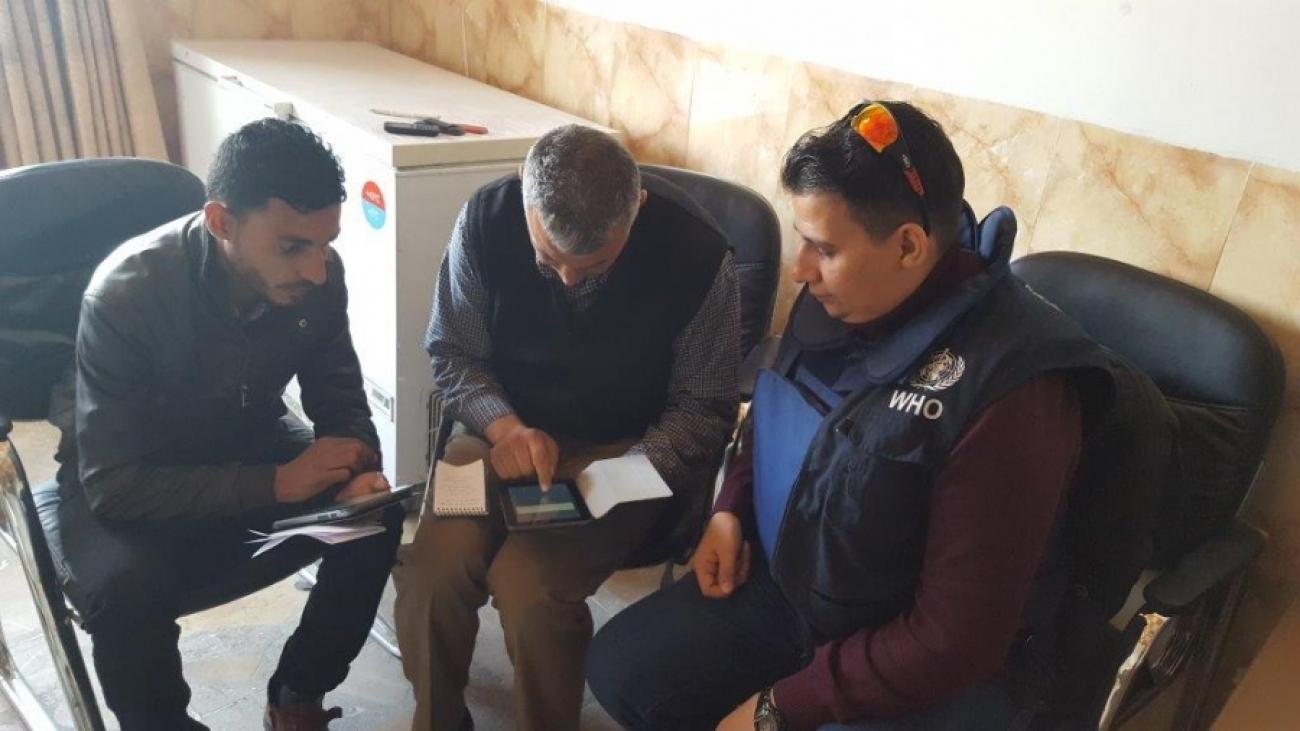WHO and UNOCHA are scaling up disease surveillance activities in newly accessible areas of Ninewa Governorate, Iraq
16 March 2017, Erbil, Iraq – The World Health Organization (WHO) and the United Nations Office for the Coordination of Humanitarian Affairs (UNOCHA) are scaling up disease surveillance activities in newly accessible areas of Ninewa Governorate, Iraq, to reduce the risk of disease outbreaks. As a result of acute shortages of safe water, sanitation services, food, and electricity in East Mosul and Hamdaniya districts, current humanitarian conditions pose a high risk of communicable diseases among displaced persons, returnees, and host communities.
Fourty three health workers, including 18 medical doctors and 25 nurses and surveillance officers, have been trained on outbreak investigation and response, and will be reporting from newly established/reopened health facilities in East Mosul and Hamdaniya. Reporting will be submitted to the EWARN website using electronic tablets to ensure timely action.
“We are stepping up efforts at all levels to identify and respond to potential communicable disease outbreaks in newly accessible areas,” said Mr. Altaf Musani, WHO Representative in Iraq. “Reducing the risk of epidemic-prone diseases among newly displaced persons and host communities is a top priority for WHO and health authorities at this point. This necessitates close coordination by all partners to establish effective disease surveillance and response action.”
“Now that EWARN has been established in new health facilities serving IDPs and hosting communities in East Mosul and Hamdaniya, the next step is to expand the network to health facilities and mobile clinics serving people in newly accessible areas in west Mosul, as soon as access is gained,” said Dr. Mahmoud Hamed, director of Public Health, Ninewa Directorate of Health.
The Early Warning, Alert, and Response Network was first established in Iraq in September 2013 with the influx of Syrian refugees to the northern region of the country. The system began with five reporting sites in five camps in Duhok, Erbil, and Sulaimaniya governorates. Today, the system has expanded to cover 204 reporting sites in all governorates. This was made possible as a result of the generous support of the European Commission's Humanitarian Aid Office (ECHO), the Office of Foreign Disaster Assistance (OFDA), and the United Nations Office for the Coordination of Humanitarian Affairs (UNOCHA).




